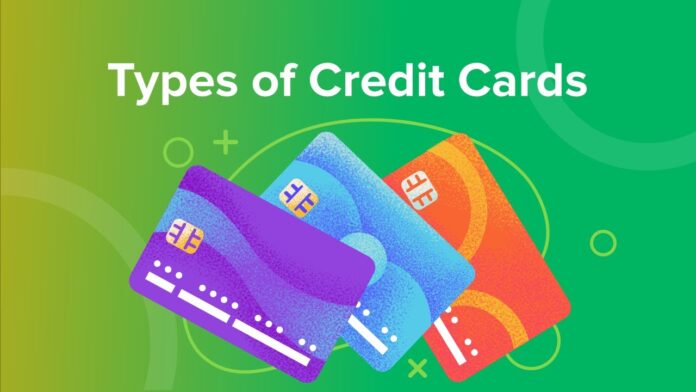In the era of digital finance, credit cards have become more than just a payment tool; they’re a key player in shaping our spending habits, managing our finances, and reaping rewards. With an overwhelming number of options available, selecting the best credit cards that align with your lifestyle is pivotal. However, this doesn’t mean you should just choose a card with the most attractive ad. Making an informed decision requires understanding several factors and matching them with your personal and financial preferences.
Understand the Types of Credit Cards Available

When embarking on the journey to find the perfect credit card, it’s important to know the primary categories of cards available:
- Rewards Cards: These rewards credit cards offer points, miles, or cash back on your purchases. Ideal for those who want to get something back for the money they spend.
- Low-Interest Cards: Aimed at those who tend to carry a balance. These cards offer lower interest rates, which can save you money in the long run.
- Secured Cards: Designed for people with little to no credit history or those rebuilding their credit. They require a security deposit, which typically determines your credit limit.
- Balance Transfer Cards: These cards allow you to transfer balances from other credit cards, usually offering a lower introductory interest rate, making it easier to pay down debt.
- Student Cards: Tailored for students, they often come with rewards, lower limits, and tools to build credit.
Evaluate Your Spending Habits

Before diving into the myriad of credit card options, evaluate your spending habits. For example, if you’re a frequent traveler, cards that offer miles or travel insurance would be beneficial. On the other hand, if you mainly use your card for everyday purchases like groceries or gas, a card that gives cash back on these items might be more apt. The trick is to align the card’s rewards or benefits with where and how you spend the most.
Examine Interest Rates and Fees
When considering any credit card, always take note of the Annual Percentage Rate (APR). The APR reflects the cost of borrowing on the card, if you don’t pay off the balance in full each month. While some cards offer low introductory rates, it’s essential to know what the rate will jump to after that period ends.
Also, be wary of annual fees. Some types of credit cards charge an annual fee in exchange for exclusive benefits. Assess whether the benefits you’d receive outweigh the annual fee. Additionally, be on the lookout for other fees such as late payment or over-the-limit fees.
Credit Limit and Utilization
The credit limit is the maximum amount you can borrow using the card. It’s crucial to be aware of this limit for two reasons. First, it can help prevent overspending. Second, maintaining a balance significantly lower than your credit limit can improve your credit score. This ratio of your card’s balance to its limit is called credit utilization. A good rule of thumb is to keep utilization under 30%. Choose a card that offers a limit in line with your spending habits but also ensures you can manage the balance responsibly.
Consider Additional Benefits and Features
Apart from rewards and interest rates, some credit cards come with a host of added benefits. These can range from travel insurance and airport lounge access to extended warranties on purchases and free credit score monitoring. While these features might not be essential for everyone, they can provide significant value for some. When comparing cards, list down the unique features of each and determine their relevance to your lifestyle.
Read the Fine Print

While the perks and benefits of credit cards can be alluring, it’s crucial to read the terms and conditions carefully. This section, often overlooked, holds information about how rewards are earned and redeemed, potential restrictions, and other crucial details that can influence your decision.
For instance, some cards might have a rewards expiration date, or there might be a cap on the amount of cashback you can earn. Being informed prevents any unpleasant surprises down the line.
The Role of Credit History
It’s no secret that your credit history plays a pivotal role in determining not only your eligibility for certain credit cards but also the terms you’re offered. If you’ve maintained a healthy credit score, it signifies to lenders that you’re responsible for the debt. This often translates to more favorable interest rates, higher credit limits, and access to premium cards with exclusive benefits.
However, if your credit history has blemishes, such as late payments or defaults, your choices might be more limited. That said, this isn’t a dead end. Several credit card options cater to those aiming to build or rebuild their credit. Secured credit cards, for instance, provide a platform to demonstrate creditworthiness over time. The journey of rebuilding credit is undoubtedly challenging, but with patience and discipline, progress is attainable.
Understanding Cash Advances and Their Implications
While credit cards are primarily a tool for purchasing, most cards also offer a cash advance feature. This allows you to withdraw cash directly, much like using a debit card at an ATM. However, these advances usually come with hefty fees and higher interest rates than regular purchases. Plus, unlike purchases, cash advances often start accruing interest immediately, with no grace period. If you anticipate needing cash advances, it’s essential to be aware of these implications and select a card that offers the most favorable terms for this feature.
The Impact of Multiple Credit Inquiries
In your search for the perfect credit card, you might be tempted to apply for multiple cards to see which ones you qualify for. However, each time a lender pulls your credit report for an application, it results in a ‘hard inquiry.’ While one or two hard inquiries might not significantly impact your credit score, several in a short span can. This is because, from a lender’s perspective, multiple applications can indicate that you’re a higher credit risk.
Therefore, before applying, use online pre-qualification tools. Many credit card issuers provide these on their websites. They give you an idea of whether you’d be approved without initiating a hard inquiry on your credit report.
Rotating Categories and Their Dynamics

Some credit cards, particularly rewards cards, operate on rotating categories. This means that the high rewards rate applies to different spending categories at different times of the year. For instance, a card might offer higher cash back on gas purchases one quarter and then switch to dining the next.
While these cards can be lucrative, they require more attention and strategy. If you’re someone who enjoys maximizing rewards and doesn’t mind tracking categories, these cards can be a boon. However, if you prefer a more hands-off approach, a card with static rewards categories might be more suitable.
Customer Service and Usability
Last but not least, consider the issuer’s reputation for customer service. Having responsive and helpful customer support can make a world of difference, especially in situations like disputing charges or reporting lost cards. Additionally, the usability of the card’s online platform or mobile app can influence your experience. If you’re tech-savvy and prefer managing your account digitally, ensure the issuer offers a seamless and intuitive online experience.
Choosing Wisely: Key Takeaways

Finding the right credit card is much like choosing a financial partner. It should be a card that complements your lifestyle, aligns with your spending habits, and offers benefits that you’d genuinely use. By evaluating your habits, understanding the different types of cards, and scrutinizing their features and fees, you can identify the perfect card for your needs. Remember, while rewards and perks are enticing, they should never encourage unnecessary spending. A credit card, when used responsibly, can be a powerful tool in managing finances, building credit, and even enjoying some unique perks.
